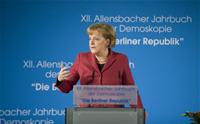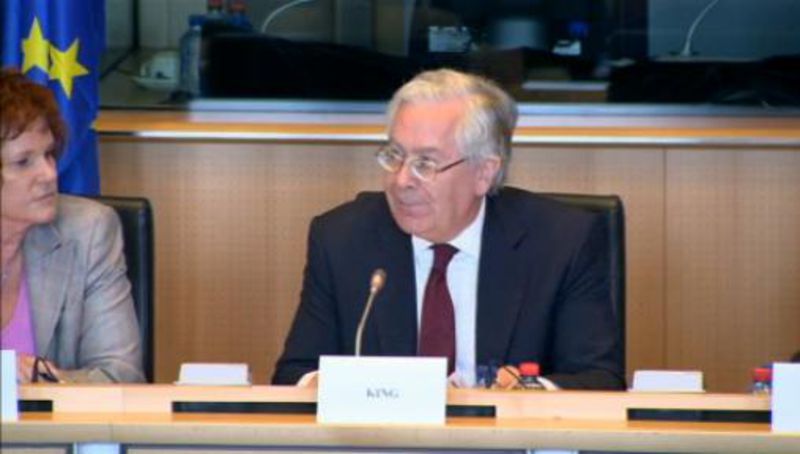Merkel: the EMF would require changes in the EU Treaty
Ralitsa Kovacheva, March 10, 2010
 The German chancellor Angela Merkel announced she supported the idea for a European Monetary Fund but warned that this might mean another change in EU Treaties, the EUobserver reported. The reason behind the need of a treaty change is the EU's 'no bailout' rule, said Ms Merkel, as outlined in the Maastricht treaty which set up the single currency area. After a painful adoption and ratification of the Lisbon Treaty, any thought of a change in the Treaty sounds extremely frightening. The German leader, however, says this should not be an obstacle for the creation of the Fund, aimed at helping eurozone's member states with financial troubles.
The German chancellor Angela Merkel announced she supported the idea for a European Monetary Fund but warned that this might mean another change in EU Treaties, the EUobserver reported. The reason behind the need of a treaty change is the EU's 'no bailout' rule, said Ms Merkel, as outlined in the Maastricht treaty which set up the single currency area. After a painful adoption and ratification of the Lisbon Treaty, any thought of a change in the Treaty sounds extremely frightening. The German leader, however, says this should not be an obstacle for the creation of the Fund, aimed at helping eurozone's member states with financial troubles.
"We want to be able to solve our problems in the future without the IMF", Ms Merkel defended her position and noted that the question who would pay in the fund and how independent it would be from the European Commission would have to be answered. The German finance minister Wolfgang Scheuble was first to announce the idea of a European Fund, similar to the IMF. At an expert level the most arrant supporters of an EMF are Daniel Gros from the Centre for European Policy Studies and Thomas Mayer from Deutsche Bank. euinside has already provided to you their proposal about how the Fund will be financed and how it will function.
And regarding the European Commission, the Economic and Monetary Affairs Commissioner Olli Rehn said that "the Commission was ready to propose such a European instrument that has the support of eurozone member countries". EurActiv quoted a Commission spokesperson who says that the Commission is discussing the issue with Germany, France and other European countries but it is too early to say whether the Fund would be just a financial instrument or a new institution with personnel and budget of its own.
The Financial Times quotes Jürgen Stark, Germany’s representative on the executive board of the European Central Bank, who condemned the idea. According to Stark, the Fund would be too expensive, it would give wrong stimuli and will be a burden for the countries with sound public finances (just the opposite position to that of Gros and Mayer). Instead of creating a Fund, new tighter budgetary rules must be introduced, with a severe supervisory mechanism, Stark says. He also thinks that the idea itself is undermining public confidence in the euro and the EU.
 | © European Union
| © European Union | © European Union
| © European Union | © European Union
| © European Union